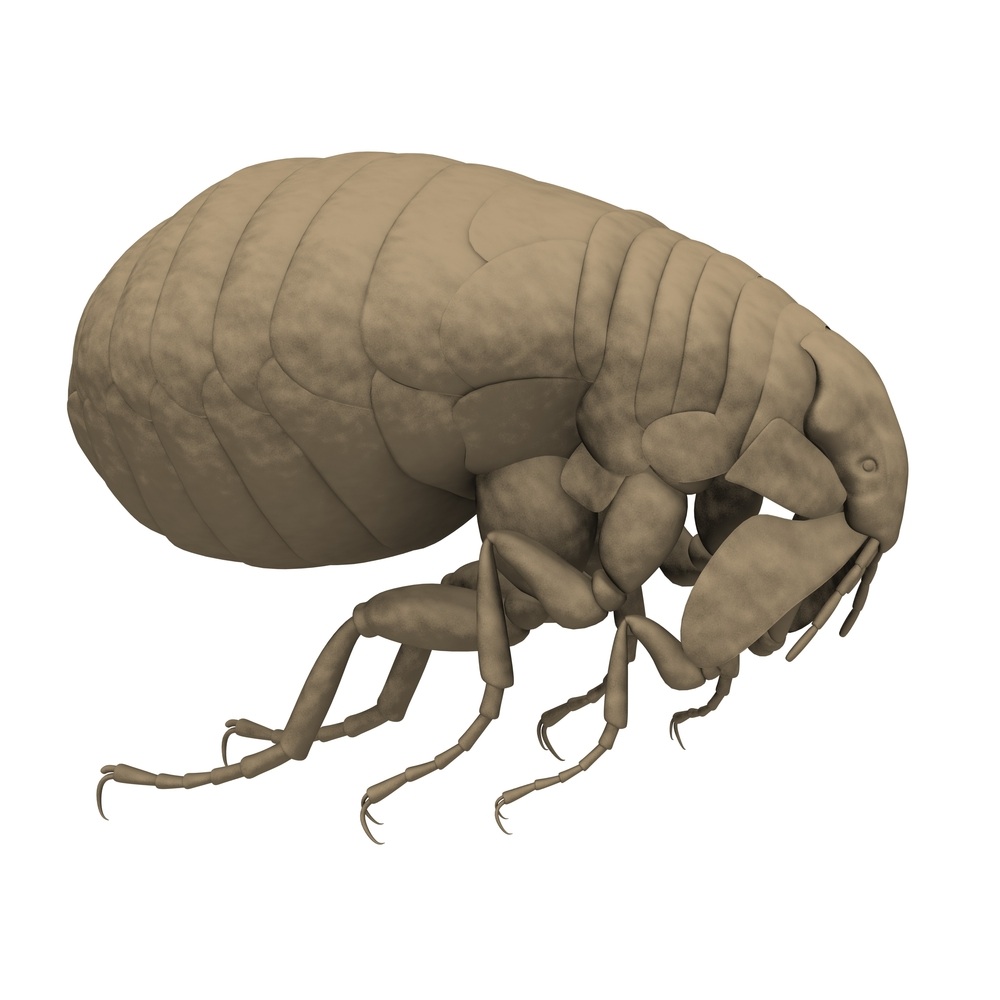
 There are no romantic stories involving mosquitoes, leeches or fleas. Despite our fascination with vampires, real life blood-sucking animals are disgusting and appalling.
There are no romantic stories involving mosquitoes, leeches or fleas. Despite our fascination with vampires, real life blood-sucking animals are disgusting and appalling.
Nobody likes to have fleas. The blame is quickly given to the family pet when we itch and scratch welts left by hopping bugs, but the truth is that humans can have fleas too. In fact, the Black Plague in 14th century Europe can be attributed to a bacteria carried and spread by fleas.
The bubonic plague spread by the fleas is estimated to have killed around 200 million people all over the world. Controlling a flea infestation is a serious matter.
There are many different types of fleas, characterized by their preferred diet. The fleas most commonly found on cats and dogs are the ctenocephalides felis, also known as cat fleas. Even the majority of fleas found on dogs are, in fact, cat fleas.
Can I Give My Cat Fleas? Answer: Depends on the Flea
Cat fleas cannot live on humans alone, but they will bite them should the opportunity arise. It is therefore, possible that you can act as a temporary host to a cat flea and thereby transmit the fleas to your pet. The type of flea that feeds on humans is different and aptly named the pulex irritans which roughly translates into ‘annoying flea’. This type of flea prefers the blood of humans and pigs, so as long as there are people around it will generally leave your cat in peace and focus on you instead.
The Diagnosis of Fleas
Fleas can go a long time without feeding. In some cases they have been known to survive one or two years without a meal. Even though human blood is not the preferred course of cat fleas, if you come in contact with them you could transmit them to your pet. If you suspect that you have been in contact with fleas and observe that your cat is constantly scratching and biting its fur examine the coat for fleas.
Being the vain self-cleaners that they are, cats might groom the actual fleas out of their coats. In that case there is another way to diagnose whether they are acting as unwilling hosts. Hold your reluctantly hospitable friend over white paper and rub the fur vigorously. The rubbing will cause the flea feces to fall on the paper. The flea feces is in fact dried blood and when made a bit moist should become a reddish hue. If this is the case, your cat has fleas.
Where Do Cat Fleas Live?
Human fleas will bite cats and could infest them, but as long their preferred meal is around they will not pose a huge threat to cats. This type of flea has also become much more rare over the years and is found mostly in pigsties. Not because they are particularly fond of messy places, but because they thrive off of pig’s blood.
A bigger concern is being a carrier for the much more common cat flea, that readily feed on humans and dogs. Cat fleas also live on rats, raccoons, possums and foxes. So if you come in contact with these animals often it might be a good idea to take preventive measures to protect you feline companion.
Flushing Out the Fleas
Controlling fleas is no easy task. It involves attacking an agile enemy in different stages of life. Flea baths with insecticide shampoos specifically designed for cats are an option, but frequently are not enough to stop an infestation. They do not kill the larvae which can be found in the carpets, rugs and linen that has come in contact with the cat.
So completely ridding your cat of a flea infestation is a matter of continuous attention. Thankfully there are other, less intense methods to keep your cat flea free. A veterinarian can prescribe an oral or topical treatment against fleas that can be renewed every few months. These treatments attack the fleas at every stage of their life cycle eliminating any potential infestation.
Prevention is Preferred
Although human fleas can feed on cats, they generally prefer human blood when it is available so the will not usually bother your cat. However, cat fleas are also capable of feeding on human blood thus making you into their host temporarily. In this case, it is possible to transfer the infestation to your cats. If you or your cat are in contact with animals that might have fleas it is best to arrange a prescription from the veterinarian to prevent any potential infestation.
